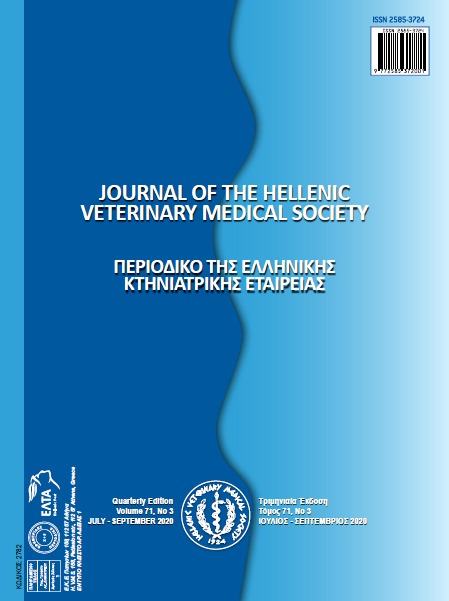In vitro anticoccidial activity of Vitis vinifera extract on oocysts of different Eimeria species of Broiler Chicken
Résumé
In the current experiment, the in vitro anticoccidial effect of Vitis venifera (grape seed) extract was evaluated. For this purpose, an in vitro sporulation inhbition assay was used. Collected oocysts of four Eimeria species (E. tenella, E. necatrix, E. brunetti and E. mitis) were exposed to six different concentrations (w/v) of Vitis vinifera extract (VVE) in 10% Dimethylsulphoxide solution (DMSO), while Dimethylsulphoxide (DMSO) and Potassium dichromate solution (K2Cr2O7) served as control groups. The results of the present study revealed that V. vinifera extract showed inhibitory effect on sporulation (%) and damage (%) of Eimeria oocysts in a dose dependent manner as compared to both control groups. V. vinifera extract also damaged the morhology of oocysts in terms of shape, size and number of sporocysts.
Article Details
- Comment citer
-
ABBAS, R., ABBAS, A., IQBAL, Z., RAZA, M., HUSSAIN, K., AHMED, T., & SHAFI, M. (2020). In vitro anticoccidial activity of Vitis vinifera extract on oocysts of different Eimeria species of Broiler Chicken. Journal of the Hellenic Veterinary Medical Society, 71(3), 2267–2272. https://doi.org/10.12681/jhvms.25071
- Numéro
- Vol. 71 No 3 (2020)
- Rubrique
- Research Articles

Ce travail est disponible sous licence Creative Commons Attribution - Pas d’Utilisation Commerciale 4.0 International.
Authors who publish with this journal agree to the following terms:
· Authors retain copyright and grant the journal right of first publication with the work simultaneously licensed under a Creative Commons Attribution Non-Commercial License that allows others to share the work with an acknowledgement of the work's authorship and initial publication in this journal.
· Authors are able to enter into separate, additional contractual arrangements for the non-exclusive distribution of the journal's published version of the work (e.g. post it to an institutional repository or publish it in a book), with an acknowledgement of its initial publication in this journal.
· Authors are permitted and encouraged to post their work online (preferably in institutional repositories or on their website) prior to and during the submission process, as it can lead to productive exchanges, as well as earlier and greater citation of published work.



